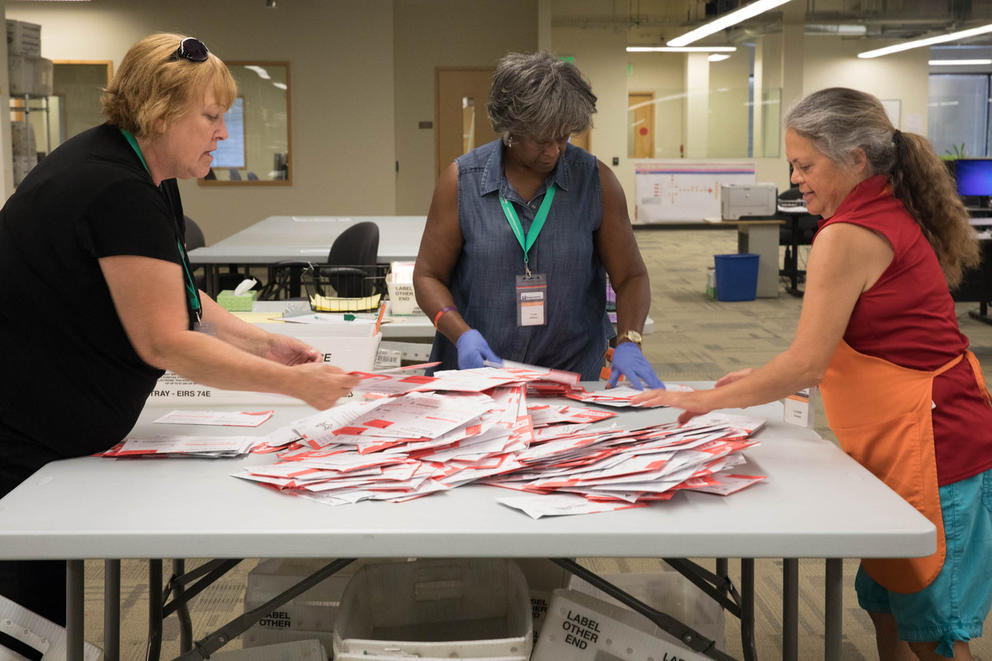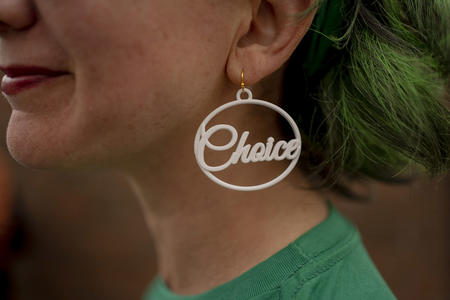For Republicans, the election in Washington is about the economy and crime. For Democrats it is about abortion, climate and protecting democracy. For both sides, it’s us vs. them. And keeping “them” out of power.
While Tiffany Smiley is showing ads about closed Starbucks in Seattle and the rising cost of deviled eggs and beer, Patty Murray’s featured a young woman from Texas who had to travel to a neighboring state for “reproductive healthcare.”
In an open-ended poll question asking, “What are the most important factors that will help you decide how to vote?”, Republican voters cited the economy #1, followed by party identification and crime, then taxes and spending. Democrats named abortion #1, followed closely by party identification, then candidate attributes and environmental issues. The economy was #5.
What is new here is that party labels are near the top of the list of important voting factors. Voters have always taken party identification into account when deciding how to vote, but lately partisanship has played a stronger role in voting decisions.
What’s more, that partisanship is largely what political scientists call “negative partisanship.” For example, within the “party /ideology” category of vote factors, most of the answers were things like, “I will not vote for any Democrats” or “No Republicans until they rid themselves of Trump.”
The Dobbs decision was a wake-up call to Democrats and socially liberal Independents who may have been disheartened by the Red Wave narrative. Dobbs seems to have triggered awareness that not only are abortion rights in jeopardy, but that elections have consequences across a range of issues, so they had better pay attention.
Dobbs shifted the debate from the economy to the culture wars. It also flipped the election from being a referendum to a choice. Both these shifts give Democrats home-field advantage in Washington state.
Democrats have long had a numeric advantage in Washington, which is what made the January poll results so notable. They showed Republicans within three points of Patty Murray and the generic legislative vote. Could the Red Wave wash over Washington?
By July, after Dobbs, the Democrats’ advantage in party identification had grown from 7 to 20 points, taking Murray and the generic Democratic legislative and congressional candidates with it, to leads of 19-20 points.
By September, the Democratic party identification advantage was back down to 11 points, indicating that things are back to “normal.” Normal in Washington since 2008 has been about a 11-12-point identification advantage for Democrats.
January’s Red Wave and July’s Blue Surge were both mostly due to fluctuations on the Republican side. Republican identification bounced from 18% in July 2021 to 29% in January 2022 to 22% in July to 27% this month. Democratic identification in that same period only moved between 36% and 40%.
This suggests that more than abortion politics are at work. Donald Trump’s refusal or inability to leave the stage may have as much to do with the Republican fluctuation as the Supreme Court does. The January 6 hearings, the Mar-a-Lago search, and all the rest have been more in the news than the Dobbs decision over the past months.
National events and trends provide a context in which individual local elections take place. Elections are determined by voters’ thinking about a mixture of societal trends, local issues, personal circumstances and individual candidates. Most elections this year are in congressional and legislative districts, where individual candidates typically weigh more heavily.
But party identification is playing a larger role than ever. In an era of sharply defined partisanship and ideologically divided parties, these poll results suggest that Tip O’Neill’s famous maxim, “All politics is local,” has been flipped. It may be more accurate now to say that “All politics is national.”
Would the Red Wave have continued without the Dobbs decision? We’ll never know. These factors play differently in Washington than in Indiana or Florida. But it’s not hard to imagine that without the decision and the Trump circus, the election here would have had a quite different tenor.
Get the latest in election news
In the weeks leading up to each election (and occasionally during the legislative session), Crosscut's Election newsletter will provide you with everything you need to know about races, candidates and policy in WA state.




